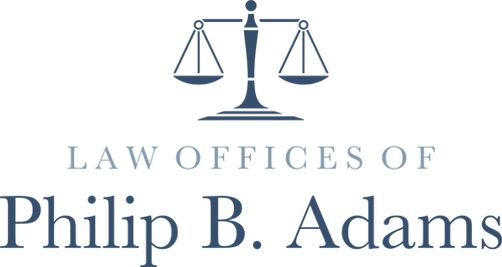|
When you are a criminal defense attorney in Louisiana, many cases that you handle will involve evidence seized by the police or other members of law enforcement. Thus, a critical question that must be determined in those cases is whether a client’s rights have been violated due to the search for, or the seizure of, that evidence. After all, this is the United States of America, and in the United States, every citizen enjoys a Fourth Amendment right against unreasonable searches and seizures.
However, the Fourth Amendment right is not absolute, and every rule has exceptions. With that said, let’s talk about the Plain View Doctrine. The Plain View Doctrine is an exception to the 4th amendment warrant requirement. It allows a police officer or other government agent to seize evidence that is observed in plain view during a lawful observation. Notably, for the Plain View doctrine to apply, the officer or government agent must:
It would be a violation of the Fourth Amendment for a seizure of evidence to take place if any one of the above factors is not met. As a result, any evidence that was illegally obtained is likely impermissible. For instance, if the officer was not lawfully present, the rule does not apply. Likewise, if the officer did not have a lawful right to access the evidence, the rule does not apply. Finally, when the evidence was not immediately identifiable as evidence of a crime, the rule does not apply. Additionally, the seizing officer or agent must have probable cause for seizure of the evidence based on the plain view and cannot conduct an additional warrantless search of the potential evidence, information, or location. If the seizing officer performed some additional warrantless search and/or intrusion, the plain view doctrine likely does not apply, and the seizure of any evidence may have violated your rights. Upon establishing that your rights were violated, the evidence should not be allowed to be used against you. Although this may seem straightforward, many questions may arise in a criminal case surrounding the legality of evidence obtained by searches and seizures. Therefore, if you have a case where evidence is alleged to have been in plain view, it is incredibly important to hire an attorney who is experienced with handling criminal cases and is well versed in issues that involve the seizure of items such as drugs, drug paraphernalia, firearms, ammunition, burglary tools, and more. Call a Louisiana Criminal Defense Attorney Today The Law Offices of Philip B. Adams offers an experienced Louisiana criminal defense lawyer who has handled many cases dealing with the Fourth Amendment and violations thereof. No matter the issue, we are here to fight for your rights and help you through every step of the process. We are located in Shreveport, Louisiana, and we represent clients throughout the state of Louisiana. If you want to learn more about our firm, you are welcome to give us a call at 318-230-7199 to set up a consultation. Also, do not hesitate to review our blog for more posts regarding criminal defense and constitutional issues. Comments are closed.
|
Law Offices of Philip B. Adams
- Home
- About Us
-
Practice Areas
-
Criminal Defense
>
- Violent Crimes >
- Sex Crimes >
- Property Crimes (Home Invasion, Burglary, Looting, Trespassing)
- Accounting, Fraud, and Forgery Crimes
- Weapons and Firearms crimes
- DWI/DUI and other traffic violations
- Cruelty to Animals crimes
- White collar crimes
- Appeals
- Post-Conviction Relief
- Expungements
- Protective orders
- Juvenile delinquency charges
- Personal Injury >
-
Criminal Defense
>
- Blog
- Recent Cases
- Media
- Contact Us
(318) 230-7199
Law Offices of Philip B. Adams, LLC
400 Travis Street, Suite 1109
Shreveport, LA 71101
Law Offices of Philip B. Adams, LLC
400 Travis Street, Suite 1109
Shreveport, LA 71101
© 2019-2020 Law Offices of Philip B. Adams, LLC | All Rights Reserved
DISCLAIMER:
Material presented on the Law Offices of Philip B. Adams (hereinafter “the Firm”) website is intended for informational purposes only. It is not intended as professional advice and should not be construed as such. The Firm is not engaged in rendering legal or other professional services by posting said material.
No Attorney-Client Relationship is created by your use of this website. Neither your receipt of information from this website nor your use of this website to contact the Firm or one of its lawyers creates an attorney-client relationship between you and the Firm.
No Confidentiality. You may not use this website to provide confidential information about a legal matter that you have to the Firm. Your use of this website does not make you a client of the firm or even a prospective client of the Firm. If you have confidential information that you would like to give to any lawyer at the Firm, please communicate with one of the Firm’s lawyers in person or by telephone–not by filling in any form on this website or by sending an unsolicited email to the Firm or any of its lawyers.
Material presented on the Law Offices of Philip B. Adams (hereinafter “the Firm”) website is intended for informational purposes only. It is not intended as professional advice and should not be construed as such. The Firm is not engaged in rendering legal or other professional services by posting said material.
No Attorney-Client Relationship is created by your use of this website. Neither your receipt of information from this website nor your use of this website to contact the Firm or one of its lawyers creates an attorney-client relationship between you and the Firm.
No Confidentiality. You may not use this website to provide confidential information about a legal matter that you have to the Firm. Your use of this website does not make you a client of the firm or even a prospective client of the Firm. If you have confidential information that you would like to give to any lawyer at the Firm, please communicate with one of the Firm’s lawyers in person or by telephone–not by filling in any form on this website or by sending an unsolicited email to the Firm or any of its lawyers.
Website by Hemingway West

 RSS Feed
RSS Feed
